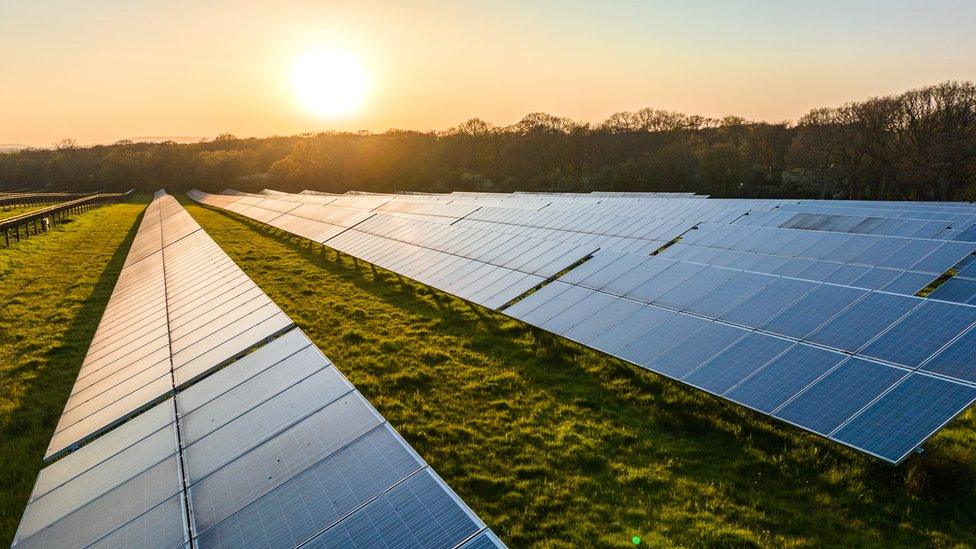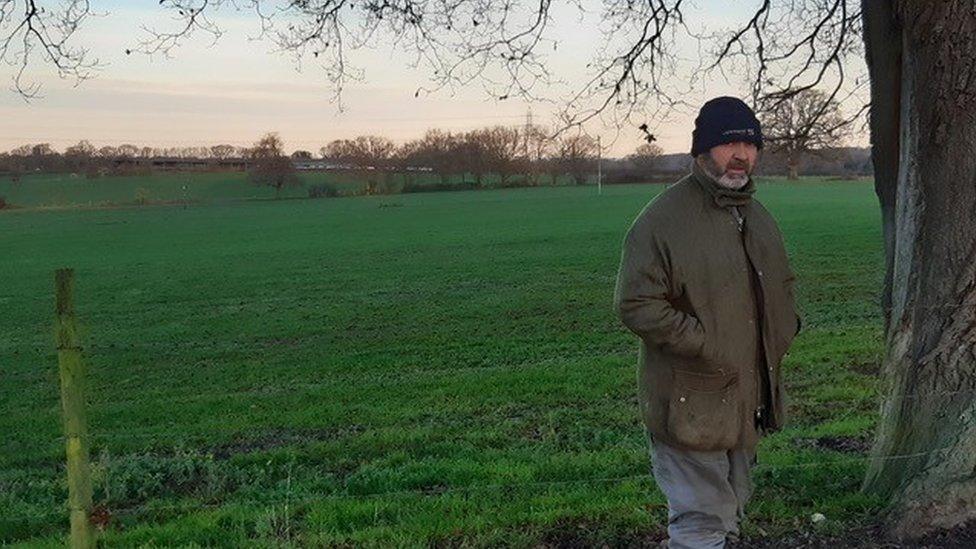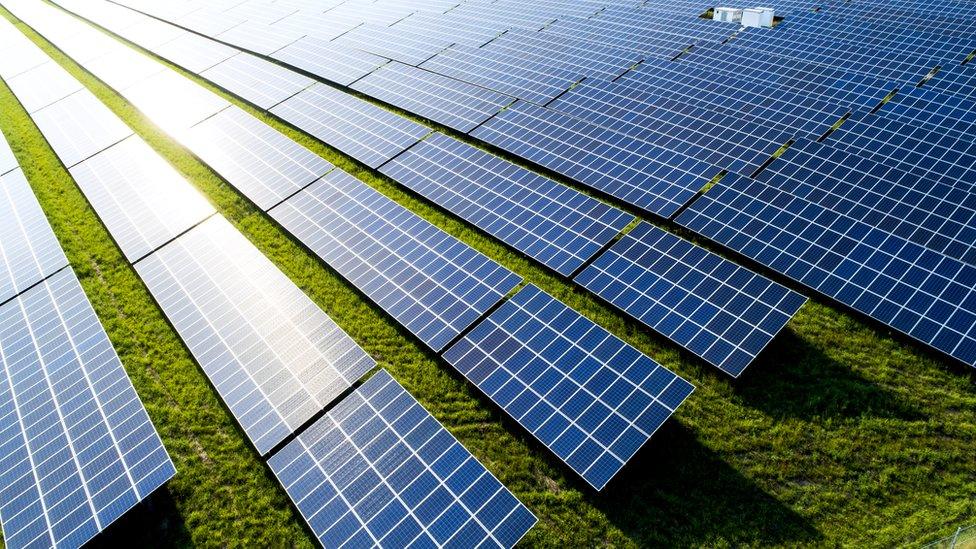Barkham Solar Farm to switch on decade early
- Published

Work to install the panels will begin in 2025
A solar farm will start generating power from summer 2026 - a decade earlier than planned, its owners said.
About 72,000 solar panels will be installed at a site in Barkham, Berkshire, which is owned by Wokingham Borough Council.
Plans had been brought forward after discussions with energy suppliers on why it should be prioritised, the authority explained.
It is expected to make enough renewable energy to power thousands of homes.
In 2021, a tenant cattle farmer who worked on the land was told to leave to make way for the plans.
Andrew Lake, who rented High Barn Farm from the council, kept 360 cows at the site.
The authority previously said the land would be returned to agricultural use after 25 years, at the end of the solar farm's lifecycle.

Farmer Andrew Lake was evicted so the panels could be installed
The scheme is part of the authority's plans for a net carbon zero borough by 2030, external.
It is the first solar farm to be run by the council, which expects it to bring in about £500,000 per year, after running costs.
Ahead of schedule
Wokingham Borough Council declared a climate emergency in 2019, drafting a plan to tackle climate change which included taking steps to generate more renewable energy.
The authority said it was now confident it would be able to connect to the national grid in two years' time - more than a decade earlier than the 2037 they were originally advised of.
It had spent months in talks with Scottish and Southern Electricity Networks (SSEN) and the National Grid on why the scheme was important and the switch-on date was subsequently brought forward.
Stephen Conway, leader of the council, called the news "fantastic".
"By generating renewable energy locally and putting it back into the grid, schemes like this have a significant part to play in securing sustainable power supplies, stabilising the costs of energy, and helping protect residents from further cost of living crisis in the longer term," he added.

Follow BBC South on Facebook, external, X, external, or Instagram, external. Send your story ideas to south.newsonline@bbc.co.uk, external.
Related topics
- Published3 August 2021

- Published2 July 2021

- Published27 January 2021
